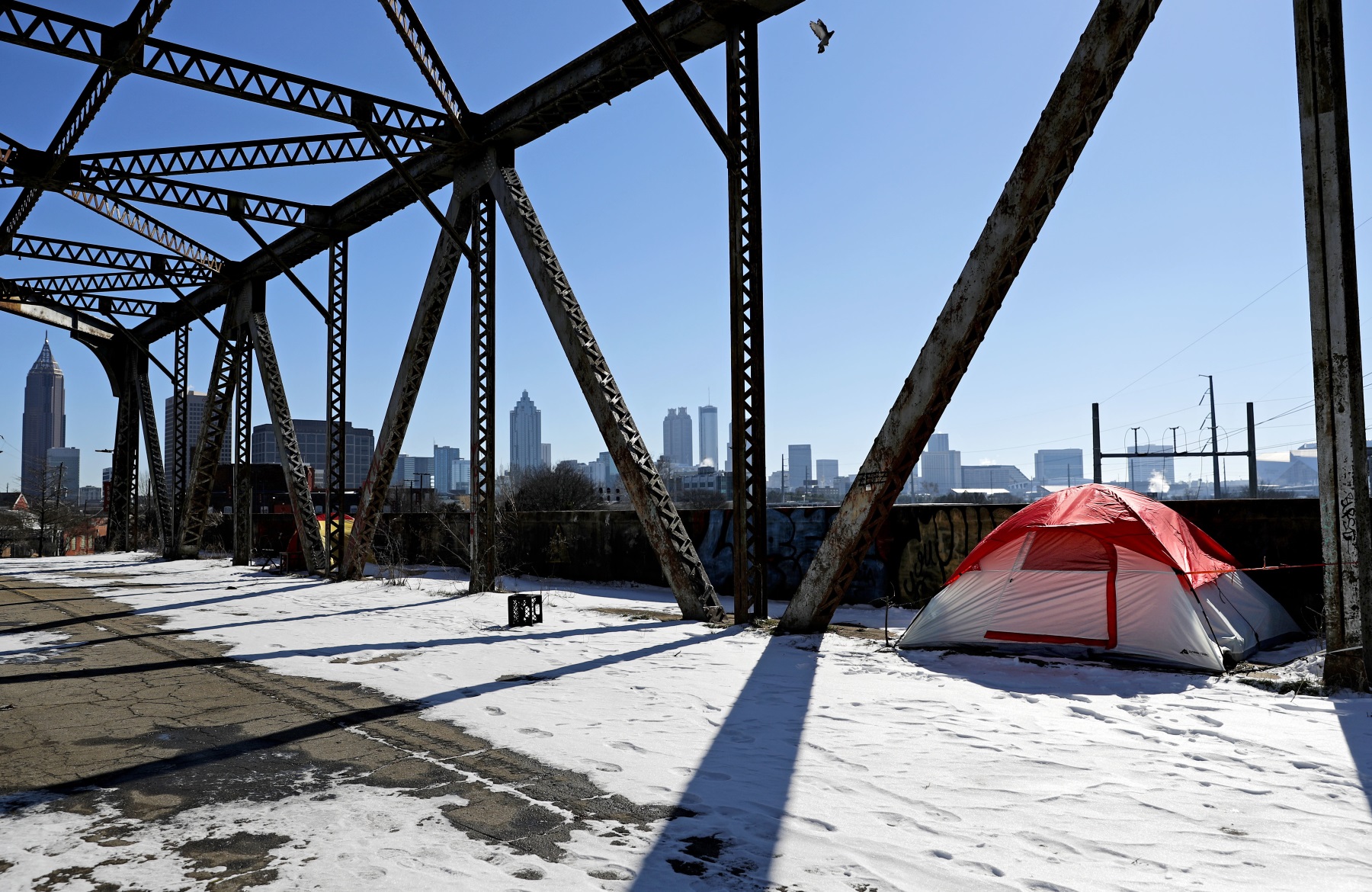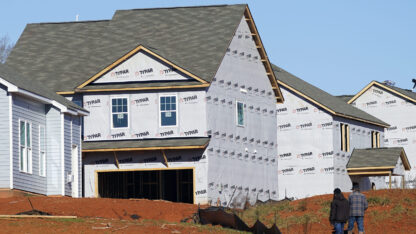This week, Atlanta began its annual census of people who are homeless in the city.
Like us on Facebook
Officials hope it shows what past point-in-time counts have: a decline in homelessness. But some worry the results could be different this year.
A crucial part of the count happened Monday night. About 200 volunteers traveled throughout Atlanta, searching for people sleeping outside.
One team pulled up under a bridge downtown, where a dozen people were wrapped in blankets. Volunteer Crystal Anderson approached one man, who agreed to answer survey questions.
“So tonight, are you going to sleep where you are tonight?” Anderson asked. The man replied, “Yes.”
This is how the city has calculated its homeless population since 2015: by trying to count, and also survey, each person.
And over that three-year period, the number of homeless people counted has steadily dropped. It’s now down 17 percent.
But at the nighttime count, George Chidi, social impact director for Central Atlanta Progress, said he wondered if the census this year could break that trend.
“I think this is a year that is a test,” Chidi said. “It’s a test of the city’s ability to absorb additional social service needs.”
What’s made him question whether the decline will continue are reports he heard last year from shelters. He said some were admitting 25 percent more people than the prior year.
“We started to see a bit of an increase in April, and we’re not a hundred percent sure what caused that,” Chidi said.
He said the people weren’t from the closing of the Midtown shelter Peachtree-Pine because its population remained stable until it shut down in the summer.
However, the city’s point person on homelessness, Cathryn Marchman, said she couldn’t comment on anecdotes. She anticipates the decline to continue.
She said shelters in the city have done a lot of work bringing homelessness down among specific groups, like veterans. Atlanta declared last year that it had effectively ended veteran homelessness.
“We’ve housed over a thousand veterans over the last year and a half. So there’s a direct correlation to our overall population declining as a result of that work,” Marchman said.
The 2018 census continues throughout the week, with daytime counts aimed at capturing anyone missed in the overnight effort.
The city will submit a final tally of Atlanta’s homeless population, including sheltered and unsheltered people, to the federal government in April.









